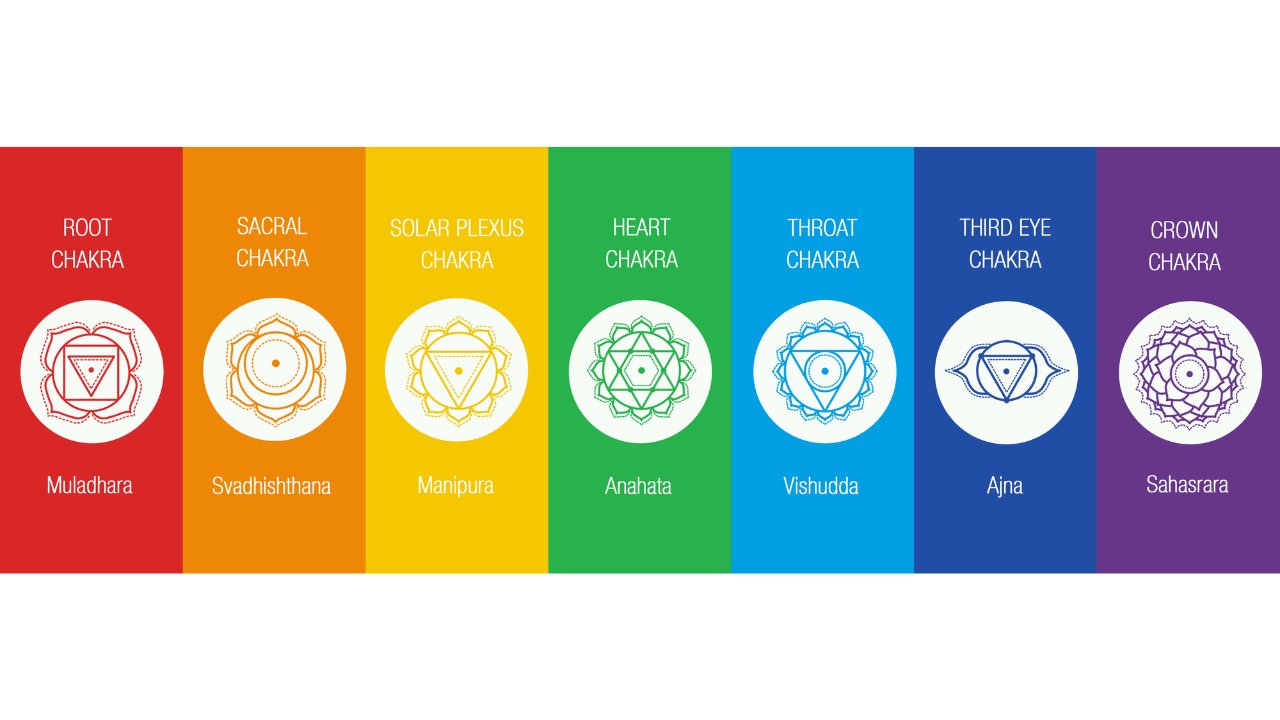Chakras and The Endocrine System

Chakras and the endocrine system are two distinct systems with different philosophical and scientific backgrounds. Chakras are energy centers described in some spiritual traditions, particularly in various Indian religions like Hinduism and Buddhism, as well as in some New Age and alternative healing practices. On the other hand, the endocrine system is a well-established physiological system in modern medical science.
Let’s explore both concepts:
Chakras:
In certain spiritual and esoteric traditions, chakras are believed to be centers of energy within the subtle body or energy body. There are typically seven main chakras aligned along the spine, from the base to the top of the head. Each chakra is associated with specific colors, elements, and attributes, and they are believed to influence various aspects of a person’s physical, emotional, and spiritual well-being.
Here are the seven main chakras and their general associations:
Root Chakra (Muladhara): Located at the base of the spine, this chakra is associated with stability, survival, and a sense of being grounded.
Sacral Chakra (Swadhisthana): Located in the lower abdomen, this chakra is associated with creativity, sexuality, and emotional well-being.
Solar Plexus Chakra (Manipura): Located in the upper abdomen, this chakra is associated with personal power, self-esteem, and confidence.
Heart Chakra (Anahata): Located at the center of the chest, this chakra is associated with love, compassion, and emotional balance.
Throat Chakra (Vishuddha): Located at the throat, this chakra is associated with communication, self-expression, and authenticity.
Third Eye Chakra (Ajna): Located between the eyebrows, this chakra is associated with intuition, insight, and spiritual awareness.
Crown Chakra (Sahasrara): Located at the top of the head, this chakra is associated with spiritual connection, higher consciousness, and enlightenment.
Endocrine System:
The endocrine system is a collection of glands that produce and release hormones into the bloodstream to regulate various bodily functions. Hormones act as chemical messengers and play a critical role in maintaining homeostasis, growth, development, metabolism, and reproductive processes. The key glands of the endocrine system include the pituitary gland, thyroid gland, parathyroid glands, adrenal glands, pancreas, ovaries (in females), and testes (in males).
Each gland within the endocrine system produces specific hormones that have distinct effects on target tissues throughout the body. For example, the pituitary gland produces hormones that regulate other endocrine glands, such as follicle-stimulating hormone (FSH) and luteinizing hormone (LH), which affect the ovaries and testes’ function.
Connection Between Chakras and the Endocrine System:
The relationship between chakras and the endocrine system is not scientifically proven or supported by empirical evidence. However, some proponents of alternative and holistic health believe that the chakras and the endocrine system are connected. They suggest that each chakra is associated with specific endocrine glands and that imbalances in chakras can affect the corresponding glands’ functioning and, in turn, impact physical and emotional health.
While the concept of chakras has a deep spiritual and cultural significance in certain belief systems, it is essential to recognize that their existence and influence on the physical body are not part of mainstream scientific understanding. The endocrine system, on the other hand, is well-studied and accepted in medical science for its vital role in maintaining physiological processes. As with any complementary or alternative healing approach, it is essential to approach the concept of chakras with an open mind and seek professional medical advice for any health concerns.



